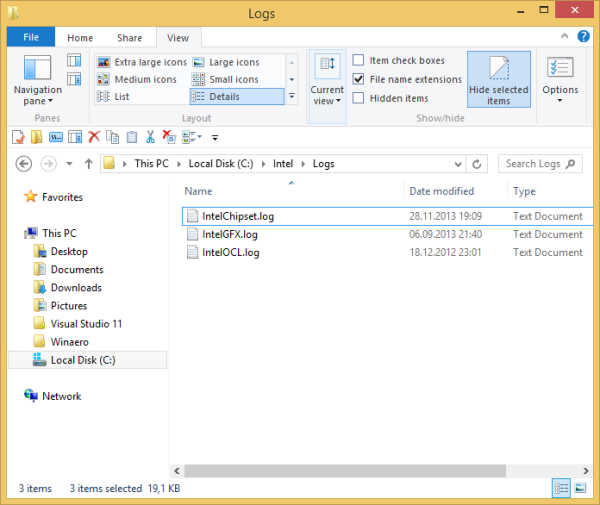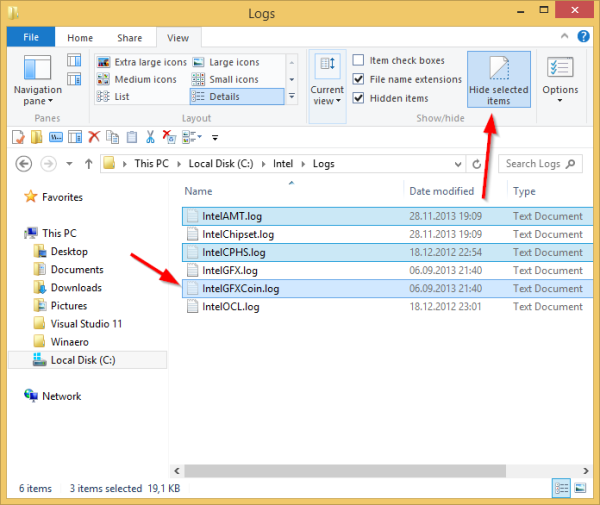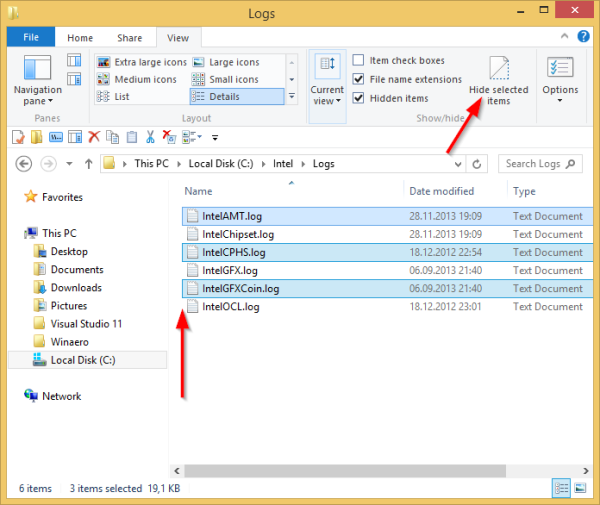There are a number of ways in Windows to hide files. In the dark ages of MS DOS, there was the 'attrib' command, which was able to set or remove the 'hidden' attribute (along with several others). In all modern Windows versions, the 'attrib' command is still available. You can use it from the command prompt. Microsoft keeps it for:
- backward compatibility;
- scripting attributes with batch files;
- historical purpose.
However, that console command isn't the only way to hide files and folders. Windows Explorer has a similar checkbox option in the properties of a file. Even in File Explorer of Windows 8.1 it is still available:
Advertisеment
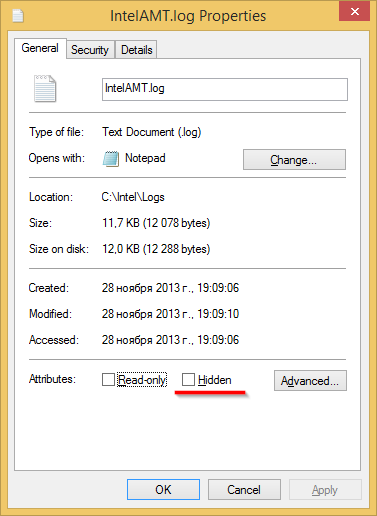
Use the 'Hidden' checkbox to set the hidden attribute for the selected file. To get this dialog, you should right click on the file and select the 'Properties' menu item from the context menu.
The File Explorer app in Windows 8 and Windows 8.1 features the Ribbon interface which has an improved way to hide files with just one click. All you need to do is select the files you would like to hide and then click the Hide selected items button from the View tab of the Ribbon.
- Select the required files in File Explorer. Also, see the following tutorial: How to invert selection in File Explorer of Windows 8.1.
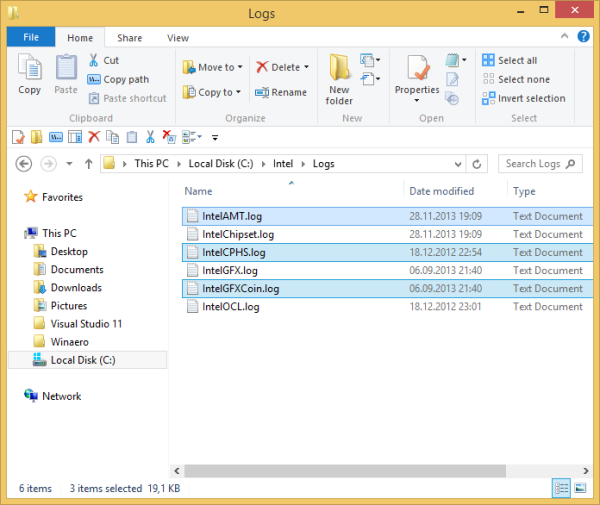
- Switch to the View tab.
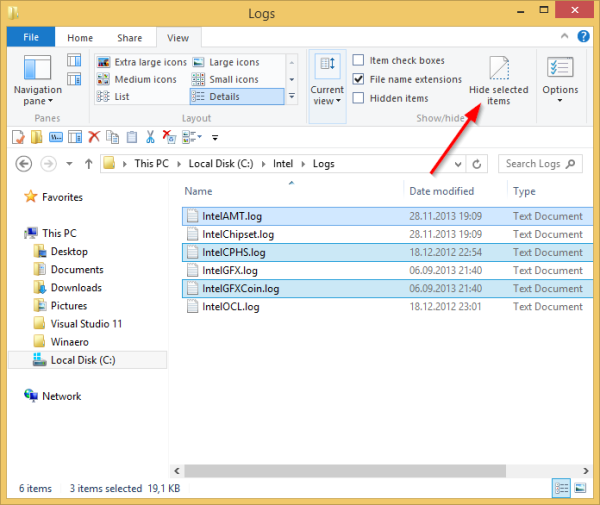
- Click the Hide selected items button.
That's it! The selected items will disappear from File Explorer, unless you have set hidden files to show.
Now, what if you wanted to show the hidden files again? Well, it is quite simple. On the View tab, tick the Hidden items checkbox. The hidden files will appear in the File Explorer window at once. Notice how they appear faded (which is also how they appear when you cut them) because they have the hidden attribute: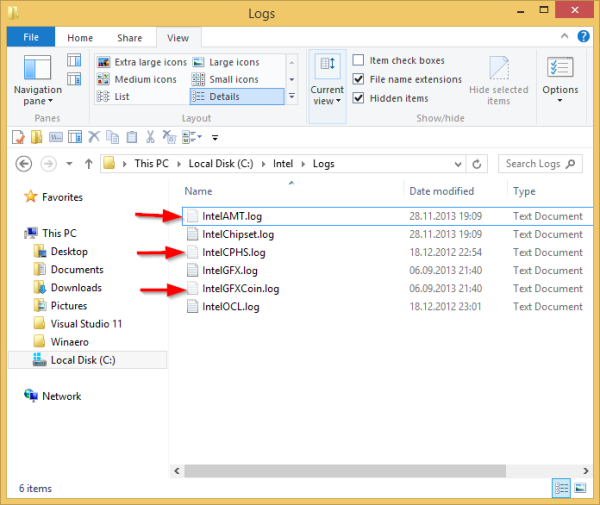 To unhide them, select the hidden files and click the same button again, Hide selected items. When you select them, you will notice that the 'Hide selected items' button already appears pressed.
To unhide them, select the hidden files and click the same button again, Hide selected items. When you select them, you will notice that the 'Hide selected items' button already appears pressed.
After you click it, the button will return to the normal unpressed state, and the hidden attribute will be removed from all selected files.
If you plan to work with hidden files very often, you might want to add the appropriate ribbon commands to the quick access toolbar. In this case, you can look at the following articles:
- How to add any ribbon command to the Quick Access toolbar of File Explorer in Windows 8.1
- How to make a backup of your Quick Access Toolbar settings in Windows 8.1
Tip: Did you know that making a file or folder hidden also hides it from the Start screen and from Start Menus like Classic Shell and StartIsBack? In fact, they are always hidden from these user interfaces even if you turn on the display of hidden files in File Explorer.
Support us
Winaero greatly relies on your support. You can help the site keep bringing you interesting and useful content and software by using these options:
